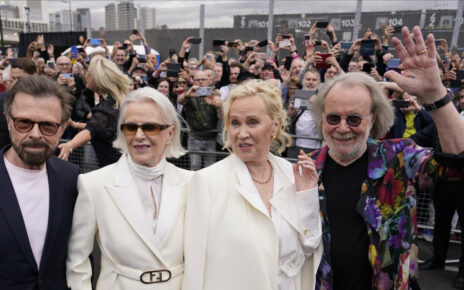Presenting his latest documentary, “Nuclear,” at the Venice Film Festival, director Oliver Stone reflected on the climate crisis in a tone all too rarely struck – optimism.
“[We need to] get away from that mentality of fear,” Stone said from a press conference just before his film’s world premiere. “Like everyone else, I saw ‘An Inconvenient Truth’ in 2006, at it was scary. I kept reading the news, and it kept getting worse.”
“The movies, television, books [about climate change] are all negative,” he continued. “And I find all that doomsday stuff to be depressing beyond belief.”
The filmmaker looked to address the issue by focusing on action, and by offering scalable and effective solutions. He found them in nuclear energy, and in a 2019 book, “A Bright Future: How Some Countries Have Solved Climate Change and the Rest Can Follow,” written by American University professor Joshua S. Goldstein.
Asked what drew him to the text, Stone was unequivocal. “This book is hopeful,” the director explained. “It’s positive and tells you that we can do something about it; that we’re not victims.”
Stone and Goldstein co-wrote the film, which tries to disentangle nuclear power from nuclear bombs, clearing up false assumptions about the method while taking aim at media properties like the HBO series “Chernobyl.” As Goldstein sees it, that kind of “fear mongering” has led us astray.
“If we’d stayed on the path of the 1970s [when nuclear production was on the rise] we would have a carbon free economy now,” said Goldstein. “We wouldn’t have this climate crisis.”
“Desalinating water, making aviation fuels, and sequestering carbon from the atmosphere all require tremendous amounts of energy and heat. Nuclear can do all these things, so there’s the potential to transform the economy across the board and to really replace fossil fuels.”
At the press conference and in the film they co-wrote, Stone and Goldstein celebrated energy initiatives in France, Sweden and Canada – and urged greater cooperation with Russia.
Stone even reiterated that last point on Friday. “We need to urge [Russia],” he said. “They want to be partners, and always did. Whatever you think about this war, it’s a setback, not just for Europe, but for the world. The best thing that could happen is cooperation.”
And so the director called for rapprochement, looking back to moments of greater international unity. “The end of the Cold War was a beautiful moment,” said Stone. “And the co-operation in space between Russia and the United States was brilliant. It worked for forty years. So don’t talk to me about the hatred between these countries because that comes and goes, and it will go away. If we’re smart, we would combine our efforts.”
Stone granted that “Nuclear” has a cleaner, more direct style than some of his loopier projects, but that was in service to the subject. “It was very important to get this story clear,” he said. “It’s a very complicated subject, and it took a long to make it clear. I’m interested in communication and simplification as much as possible. But one day I may go back to do something crazy!”
Read More About:
Source: Read Full Article

